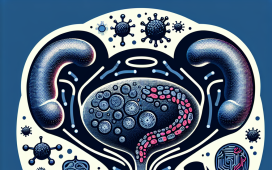Cancer treatment has traditionally focused on methods such as surgery, chemotherapy, and radiation therapy. While these treatments have saved countless lives, they can also have significant side effects and limitations. Immunotherapy, a revolutionary approach to cancer treatment, harnesses the power of the immune system to fight cancer cells. In this blog post, we will explore the role of immunotherapy in cancer treatment and how it is transforming the field of oncology.
Understanding the Immune System’s Role in Cancer
The immune system is the body’s natural defense mechanism against foreign invaders, such as bacteria and viruses. However, cancer cells can evade immune detection and suppression, allowing them to grow and spread. Immunotherapy aims to enhance the immune system’s ability to recognize and eliminate cancer cells by either stimulating the immune response or removing inhibitory signals that prevent immune cells from attacking cancer cells.
Types of Immunotherapy
There are different types of immunotherapy, each with unique mechanisms of action and applications. These include:
- Immune Checkpoint Inhibitors: These drugs block the “brakes” on the immune system, allowing immune cells to recognize and attack cancer cells more effectively. Immune checkpoint inhibitors have shown remarkable success in treating various types of cancer, including melanoma, lung cancer, and bladder cancer.
- CAR-T Cell Therapy: This innovative therapy involves engineering a patient’s own immune cells, called T cells, to recognize and eliminate cancer cells. CAR-T cell therapy has shown remarkable success in treating certain blood cancers, such as leukemia and lymphoma.
- Cancer Vaccines: These vaccines aim to stimulate the immune system’s response against specific cancer cells by introducing antigens that elicit an immune response. Cancer vaccines are currently being studied for their potential in preventing the recurrence of certain cancers.
- Adoptive Cell Transfer: This approach involves harvesting immune cells from a patient, modifying them to enhance their ability to recognize and attack cancer cells, and then reintroducing them into the patient’s body. Adoptive cell transfer shows promise in treating certain types of cancers, such as melanoma.
Benefits of Immunotherapy
Immunotherapy has revolutionized cancer treatment in several ways:
- Targeted Approach: Unlike traditional treatments, which can affect both cancerous and healthy cells, immunotherapy specifically targets cancer cells, leading to fewer side effects and improved quality of life for patients.
- Long-Lasting Effects: Immunotherapy can “train” the immune system to remember cancer cells, providing long-term protection against cancer recurrence.
- Treatment of Advanced Cancers: Immunotherapy has shown significant efficacy in treating advanced or metastatic cancers that may not be responsive to traditional treatments.
- Personalized Treatment: Immunotherapy can be tailored to an individual’s specific cancer type and immune profile, increasing the chances of success and minimizing unnecessary treatments.
Current Challenges and Future Directions
While immunotherapy has shown great promise, challenges still exist. Some patients may not respond to immunotherapy, and there can be potential side effects related to an overactive immune response. Ongoing research is focused on improving response rates, developing new immunotherapy approaches, and identifying biomarkers to predict patient response.
In conclusion, immunotherapy represents a groundbreaking approach to cancer treatment that utilizes the power of the immune system to fight cancer cells. With its targeted approach, long-lasting effects, and potential for personalized treatment, immunotherapy is revolutionizing the field of oncology. As research continues and new advancements are made, immunotherapy holds enormous potential to improve patient outcomes and change the landscape of cancer treatment.








